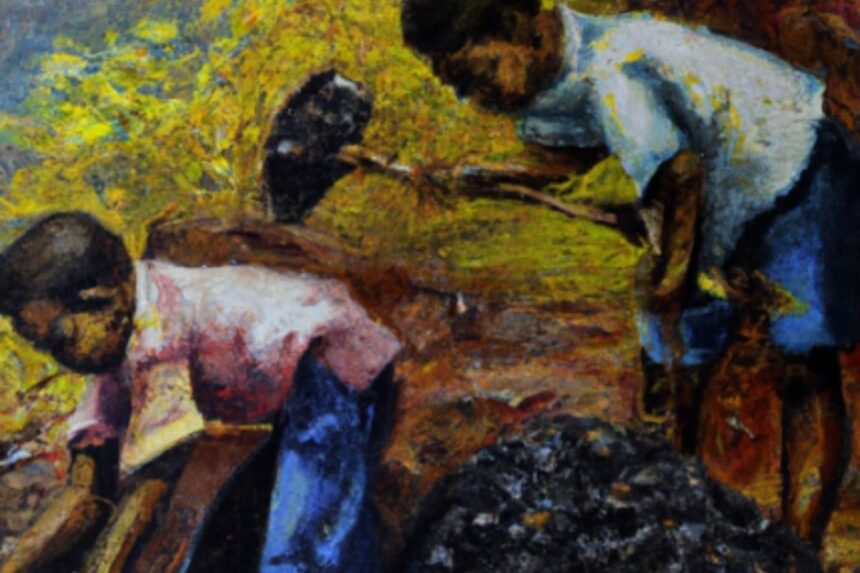The Democratic Republic of Congo, the heart of electric vehicle batteries, fondly known by many as the heart of Africa, is not just a country brimming with rich cultural tapestries and a tumultuous history, but also one with subsoil abundantly laden with some of the world’s most sought-after minerals. From the screens of our smartphones to the batteries powering electric vehicles, Congo’s mineral wealth has become an integral part of our daily lives. As the global demand for these resources surges, so does the international interest in Congo’s mining sector.
- The Global Electric Vehicle Batteries Boom
- China’s Deepening Footprint in the DRC
- Human Cost: The Dark Side of the Electric Vehicle Batteries Rush
- Environmental Repercussions
- Economic Dependence and Vulnerabilities
- Geopolitical Implications: The New Scramble for Africa
- The Moral Imperative: Beyond Profits and Electric Vehicle Batteries
- Charting a Collaborative Future
One country, in particular, has taken a keen interest in this African nation’s mineral prospects: China.
Kazi Mwamba
As the world’s second-largest economy, China’s forays into Congo’s mining sector are multi-faceted, influential, and undoubtedly significant for both nations. This article seeks to unearth the intricate relationship between Congo’s mineral wealth and China’s role in its extraction, providing a comprehensive, well-balanced perspective.
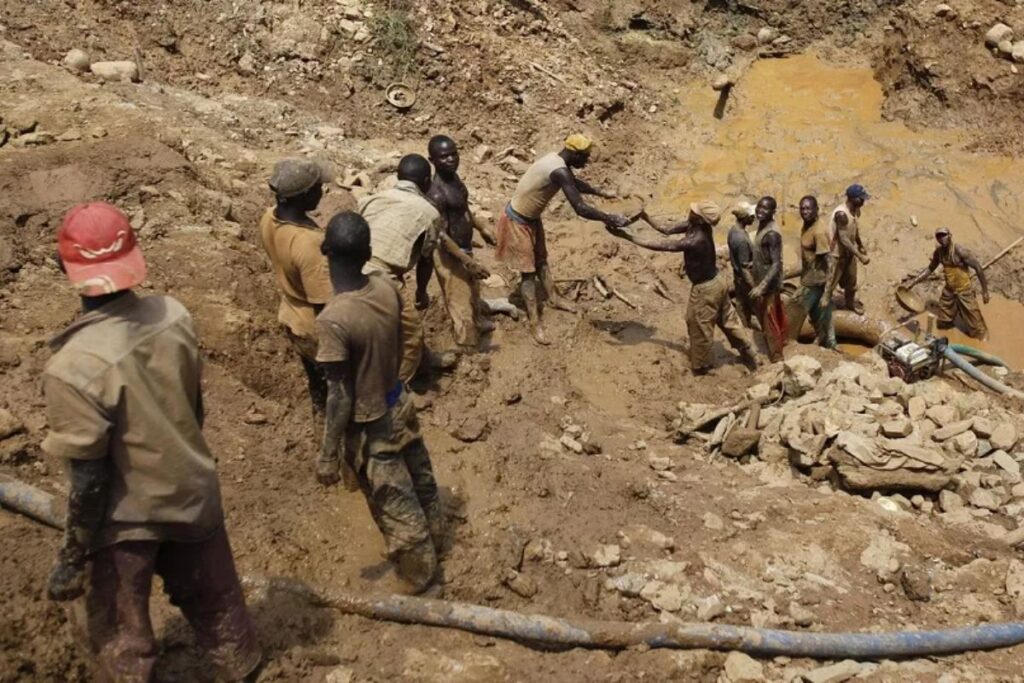
The Global Electric Vehicle Batteries Boom
The dawn of the Electric Vehicle Batteries era represents a paradigm shift in how the world perceives energy. From environmentalists to tech moguls, these are hailed as the key to a greener future, offering a tangible solution to combat the impending doom of climate change. Amidst this backdrop, China emerges as a formidable force in the Electric Vehicle Batteries landscape. Not only has China entrenched itself as a top manufacturer of Electric Vehicle Batteries, but its domestic market also displays an insatiable appetite for electric vehicles.
The linchpin holding this expansive Electric Vehicle Batteries industry together is cobalt. This metal, characterized by its high energy density, is instrumental in increasing the longevity and efficiency of Electric Vehicle Batteries. As the Electric Vehicle Batteries market witnesses exponential growth, the cobalt supply chain, by extension, feels the pressure. Enter the DRC – a nation that, although fraught with political instability and infrastructural challenges, is pivotal to the Electric Vehicle Batteries narrative due to its vast cobalt reserves.
China’s Deepening Footprint in the DRC
The tapestry of Sino-Congolese relations is intricate, woven over decades of trade, diplomacy, and mutual interests. But the recent Electric Vehicle Batteries revolution has added new dimensions to this relationship. Chinese enterprises have been accelerating their investments in the DRC, establishing vast mining operations to extract the coveted cobalt.
Critics, however, paint a bleak picture. They argue that under the guise of mutual development, China has embarked on a quest to monopolize the DRC’s cobalt resources. Allegations abound of Chinese companies employing underhanded tactics, from land grabs to coercive contracts that heavily favor Chinese interests. As the world’s Electric Vehicle Batteries market pivots towards the DRC, the nation finds itself in a precarious position. On one hand, the investments pour in, potentially uplifting an economy in dire need of revitalization. On the other, these same investments are viewed through a lens of skepticism, with many believing that the DRC’s sovereignty is being traded away to satiate China’s Electric Vehicle Batteries ambitions.
Furthermore, the narrative isn’t just about economics. The socio-cultural fabric of the DRC is also undergoing a transformation. As Chinese miners and workers establish communities in the DRC, there’s a cultural exchange taking place. Yet, the looming question remains: At what cost does this deepening relationship come, especially when the scales seem tipped in favor of China’s Electric Vehicle Batteries objectives?
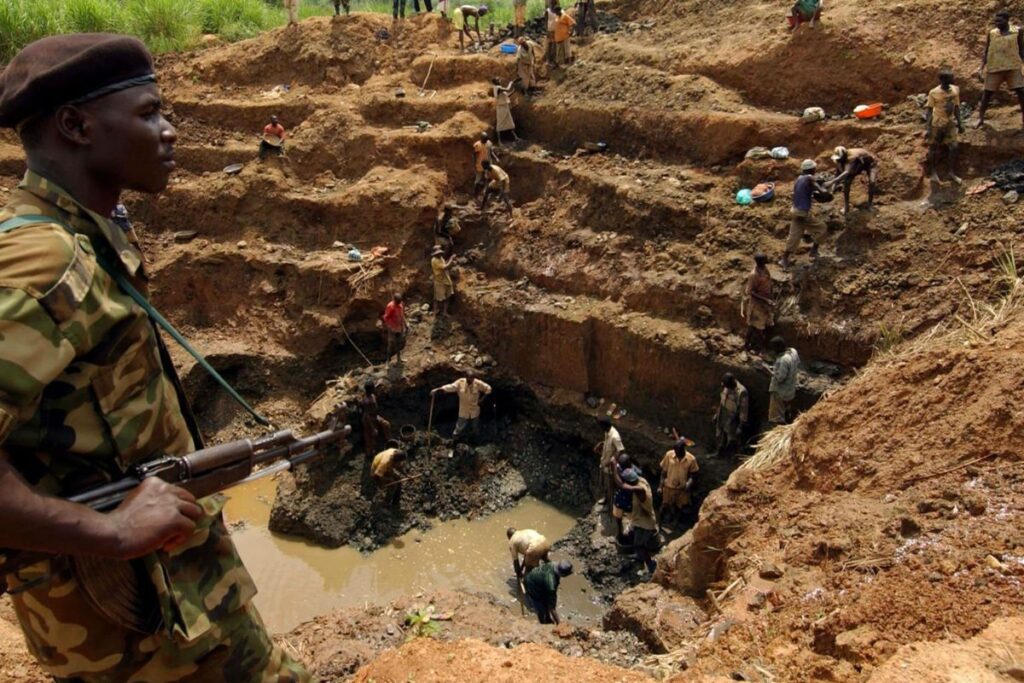
Human Cost: The Dark Side of the Electric Vehicle Batteries Rush
As the pulse of the Electric Vehicle Batteries industry beats stronger with each passing day, the DRC’s cobalt mines bear witness to a distressing dichotomy. While cobalt powers the future of sustainable transportation, its extraction narrates a tale of present-day suffering and exploitation.
Within the depths of the Congolese mines, there’s a human toll that’s often overlooked in the larger Electric Vehicle Batteries discourse. Reports and documentaries have consistently shed light on the appalling working conditions miners endure.
Yet, what is even more harrowing is the widespread use of child labor. Children, some as young as seven, are thrust into these perilous mines, robbed of their innocence and childhood. Their tiny hands, ideal for picking out cobalt-rich stones, work tirelessly, unaware that their labor fuels the Electric Vehicle Batteries that power luxury cars in far-off lands. These children, breathing in toxic dust and working in treacherous conditions, become the unsung casualties of the Electric Vehicle Batteries revolution.
While China’s demand for cobalt is undeniable, it’s essential to scrutinize the ethical considerations of their procurement methods. Chinese companies, in their pursuit of cobalt, have often been linked to mines with dubious labor practices. As the primary benefactors of the DRC’s cobalt, the onus falls on Chinese enterprises and, by extension, the global Electric Vehicle Batteries market to ensure that the cobalt’s journey from the Congolese soil to Electric Vehicle Batteries is devoid of human rights violations.
Environmental Repercussions
The environmental narrative surrounding Electric Vehicle Batteries is paradoxical. While they promise a future of reduced carbon emissions and cleaner air, the extraction of their essential components wreaks havoc on the environment.
The aggressive mining required to satiate the global Electric Vehicle Batteries demand has left indelible scars on the Congolese landscape. Vast tracts of forests are razed, leading to loss of biodiversity and disruption of fragile ecosystems. The water bodies, the lifeblood of many local communities, bear the brunt of contamination from mining runoff, affecting both human and aquatic life.
China’s role in this environmental narrative is multifaceted. Chinese mining companies, driven by the relentless demand for Electric Vehicle Batteries components, are often at the forefront of this environmental degradation. While it’s unjust to solely pinpoint China — after all, the global demand for Electric Vehicle Batteries implicates everyone — the scale of Chinese operations in the DRC demands a closer examination.
The question that emerges is one of sustainability. Can the Electric Vehicle Batteries industry, especially in China, pivot towards more ecologically responsible extraction methods? The weight of the Electric Vehicle Batteries revolution should not be borne by the Congolese environment, and a reimagining of the cobalt supply chain is imperative.
Economic Dependence and Vulnerabilities
The DRC’s economy, for better or worse, is intertwined with its mineral wealth. Cobalt, especially in the Electric Vehicle Batteries era, occupies a pivotal position in the nation’s economic framework. As global Electric Vehicle Batteries demand escalates, the DRC’s GDP sees an uptick, primarily driven by cobalt exports.
However, this economic boom is a double-edged sword. The DRC’s heavy reliance on cobalt exports makes it vulnerable to market volatilities. A slump in demand or a technological shift away from cobalt could spell economic disaster for the nation.
China’s economic machinations in the DRC further complicate the narrative. With Chinese companies controlling significant portions of the cobalt extraction and export process, they wield substantial influence over cobalt prices. This leverage raises concerns about economic neocolonialism, with the DRC’s fiscal health potentially held hostage by external interests aligned with the Electric Vehicle Batteries market.
The DRC’s economic tapestry in the Electric Vehicle Batteries era is thus one of potential and peril. While the present might be paved with profits, the future is fraught with uncertainties.
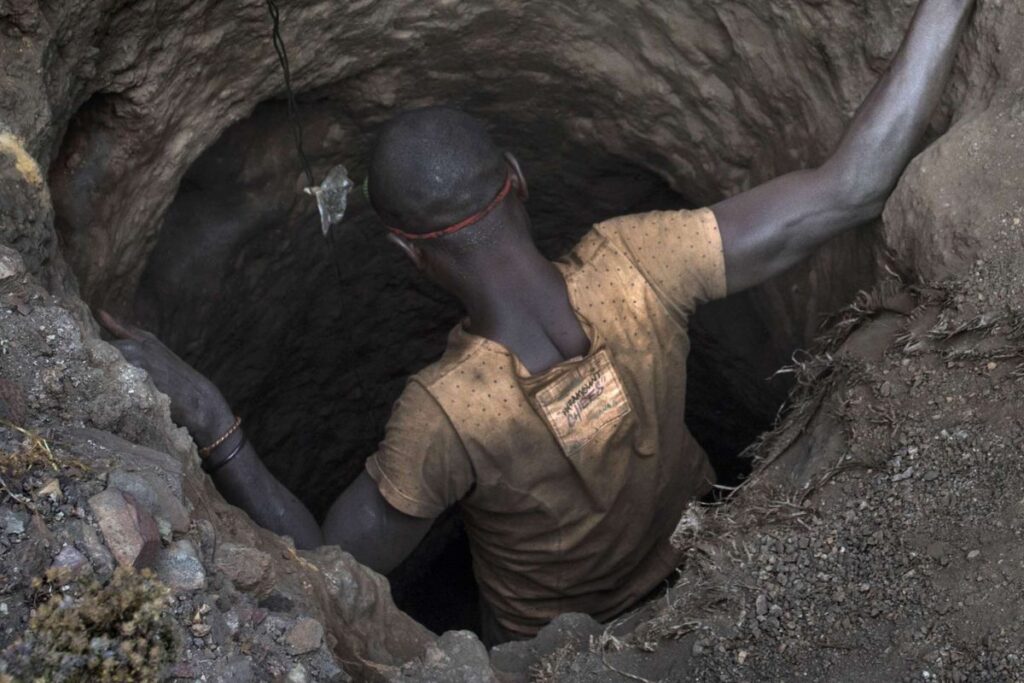
Geopolitical Implications: The New Scramble for Africa
The modern-day rush for the DRC’s cobalt resources mirrors historical scrambles for Africa, albeit with contemporary players and stakes. The DRC’s significance in the Electric Vehicle Batteries narrative elevates it to a key geopolitical chessboard, with China making decisive moves.
China’s expansive Belt and Road Initiative (BRI) serves as a testament to its global ambitions, and the DRC, with its cobalt reserves, fits seamlessly into this grand design. Infrastructure projects, loans, and economic partnerships are crafted, solidifying China’s presence in the region. Yet, these maneuvers are not merely economic; they have geopolitical undertones. By establishing a stronghold in the DRC, China not only ensures a steady cobalt supply for its Electric Vehicle Batteries industry but also expands its geopolitical influence in Africa.
The West, especially the US and the EU, are not mere spectators in this game. As Electric Vehicle Batteries become central to their green initiatives, they too seek to secure cobalt sources. This results in a tug-of-war, with the DRC caught in the crossfire. While China might currently hold the upper hand, thanks to its early investments and aggressive strategies, the geopolitical landscape is fluid. The Electric Vehicle Batteries demand has transformed the DRC into a hotbed of international diplomacy, intrigue, and power plays.
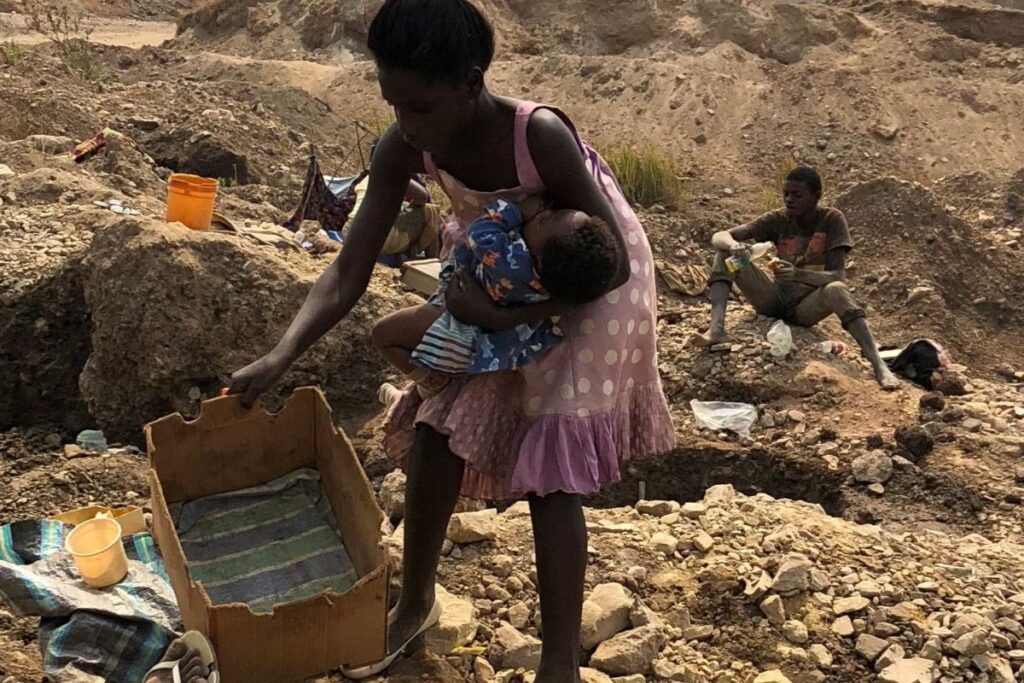
The Moral Imperative: Beyond Profits and Electric Vehicle Batteries
While the economic, environmental, and geopolitical facets of the Electric Vehicle Batteries story are critical, an equally compelling narrative emerges around ethics and morality. The DRC’s cobalt saga presents a moral conundrum for the global community, especially stakeholders in the Electric Vehicle Batteries market.
The juxtaposition of luxury electric vehicles cruising in gleaming cities against the backdrop of child miners in the DRC is jarring. How can the industry, including major players like China, reconcile these stark disparities? There’s an ethical responsibility to ensure that the path to a greener future doesn’t trample on basic human rights.
China, given its dominant role in the Electric Vehicle Batteries supply chain, is under the microscope. Chinese companies, both state-owned and private, need to adopt transparent and ethical mining practices. The global community, consumers of this products, and international watchdogs have a role to play in holding companies accountable.
Moreover, the Electric Vehicle Batteries industry’s pursuit of sustainability shouldn’t be limited to carbon footprints. A truly sustainable industry acknowledges and rectifies socio-economic imbalances, invests in local communities, and prioritizes human dignity over profits.
Charting a Collaborative Future
The DRC’s cobalt and the Electric Vehicle Batteries revolution present a multifaceted narrative of opportunities, challenges, and ethical dilemmas. While China’s role is undeniable and often contentious, it’s essential to move beyond blame games and work collaboratively.
A sustainable future demands a holistic approach. Stakeholders, from miners in the DRC to Electric Vehicle Batteries manufacturers in China, need to be on the same page. Collaborative frameworks that prioritize ethical mining, environmental conservation, and equitable profit-sharing can pave the way forward.
The revolution holds the promise of a greener future, but its true success will be measured by the legacy it leaves behind in places like the DRC. The onus is on global leaders, corporations, and consumers to ensure that this legacy is one of empowerment, sustainability, and shared prosperity.
The stark realities unveiled by the DRC’s cobalt narrative and its link to the Electric Vehicle Batteries industry compel us not just to be informed readers but active participants in crafting a better future. Beyond the words and figures, real lives are impacted, and they need our support. By donating to organizations working on the ground in the DRC, you can aid efforts to improve mining conditions, combat child labor, and provide essential services to affected communities. Every contribution, big or small, can make a tangible difference. Let’s not remain passive observers; let’s take action. Donate today and be a beacon of hope for those working tirelessly in the depths of the Congolese mines.








